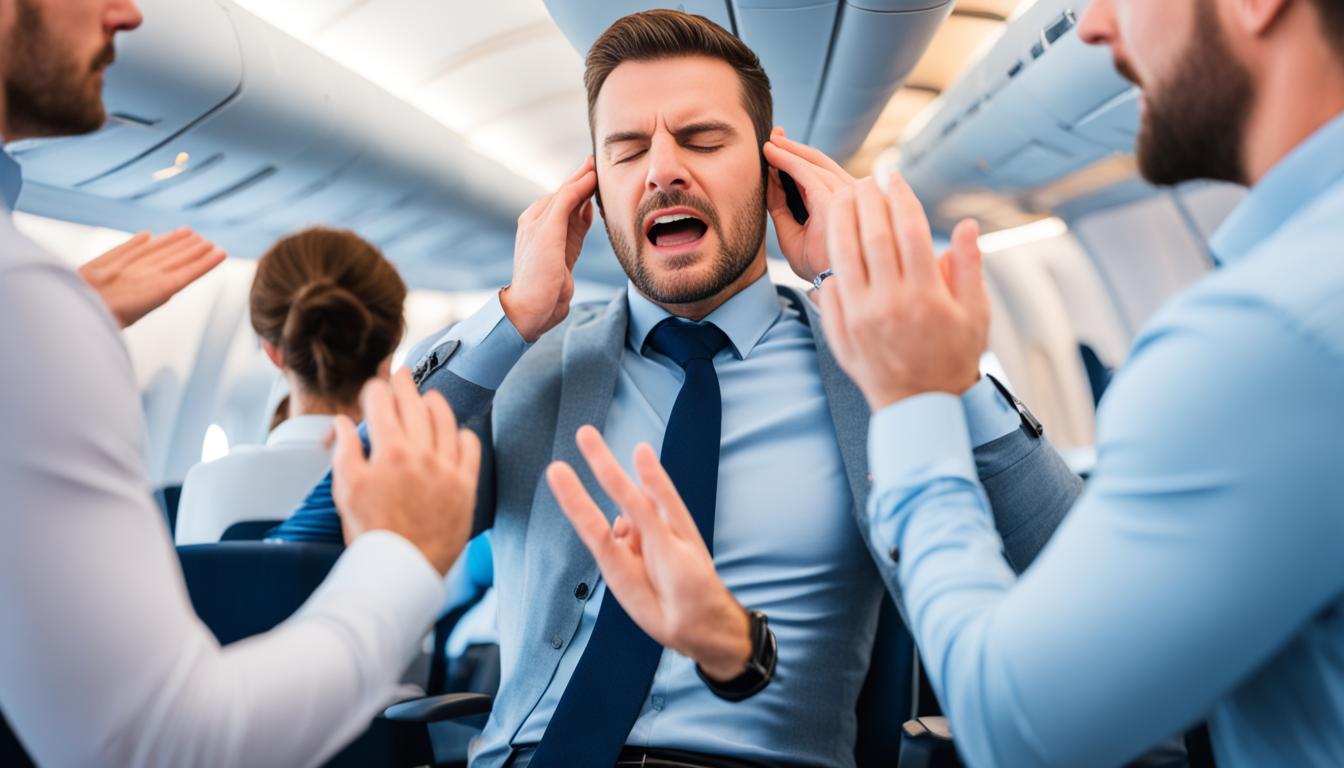Are you experiencing discomfort in your ears due to changes in air pressure? Popping your ears can provide relief and restore equilibrium. This article will guide you on various ear popping techniques, ear pressure relief, and ear clearing methods. We’ll explore safe and effective ways to alleviate the discomfort and restore comfort to your ears.
Is it Safe to Pop Your Ears?
Popping your ears is generally safe and can provide relief from discomfort caused by clogged ears. Many people experience clogged ears due to factors such as changes in air pressure, earwax buildup, or sinus congestion. By popping your ears, you can equalize the pressure and alleviate the symptoms of clogged ears.
However, it’s important to note that if your symptoms worsen or persist, it’s advisable to consult your doctor. While popping your ears is generally safe, there may be underlying conditions or complications that require medical attention.
Clogged ears can cause:
- Discomfort
- Decreased hearing
- Ear pain
- Ringing in the ears (tinnitus)
It’s crucial to be cautious when using over-the-counter or prescription medications to unclog your ears. Always follow the instructions carefully and consult your doctor if you have any concerns or if your symptoms persist despite trying self-care techniques.
If you experience any of the following symptoms, it’s recommended to consult your doctor:
- Pus or discharge draining from your ear
- Hearing loss
- Fever
- Severe ear pain
Consulting a medical professional will help identify the underlying cause of your clogged ears and ensure appropriate treatment is provided.
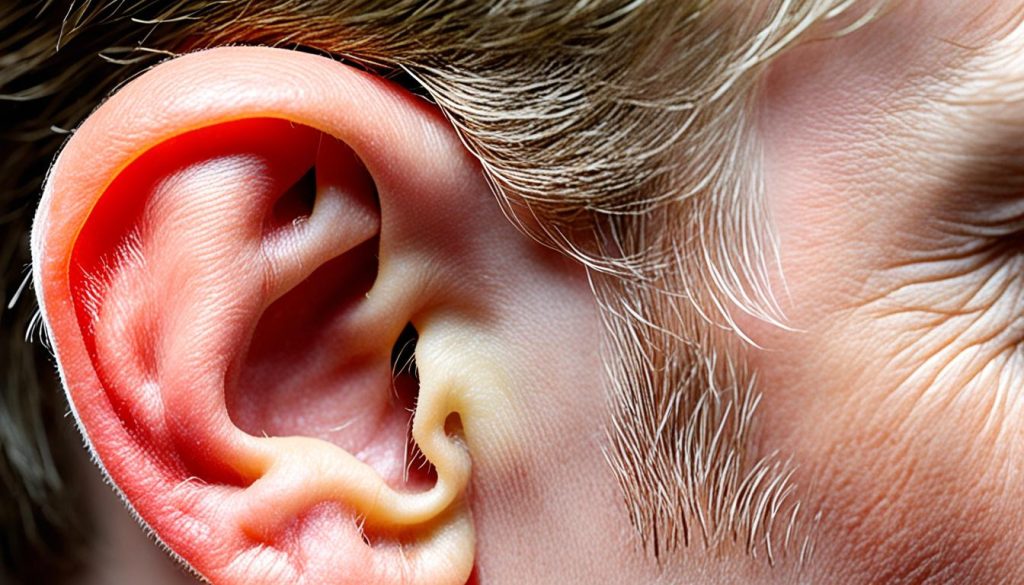
Remember, while popping your ears can provide temporary relief and is generally safe, if you experience persistent discomfort or worrisome symptoms, it’s important to consult your doctor for proper evaluation and guidance.
How to Pop Your Ears?
Popping your ears can provide relief from pressure and discomfort caused by changes in air pressure. Fortunately, there are several easy techniques that can help you pop your ears quickly and safely.
One of the easiest ways to pop your ears is by swallowing. This simple action activates the muscles that open the eustachian tube, allowing air to flow in and equalize the pressure in your ears. You can also try sucking on candy or chewing gum, as these actions stimulate the same muscles and promote ear clearing.
Yawning is another effective method for popping your ears. When you yawn, the muscles that control the eustachian tube are activated, helping to open the tube and relieve the pressure. If you can’t yawn naturally, you can try “fake” yawning by opening your mouth wide as if you were yawning.
The Valsalva maneuver is a technique that involves gently blowing air through your nose while pinching your nostrils closed. This maneuver increases the pressure in the back of your throat, which helps to open the eustachian tube and release the pressure in your ears.
Another maneuver you can try is the Toynbee maneuver. This involves swallowing while pinching your nostrils closed. The combination of swallowing and equalizing the pressure in your ears can relieve discomfort and help pop your ears.
To summarize, the easiest ways to pop your ears include:
- Swallowing or sucking on candy
- Yawning or fake yawning
- The Valsalva maneuver
- The Toynbee maneuver
By using these simple techniques, you can quickly and easily relieve ear pressure and enjoy greater comfort during changes in air pressure.
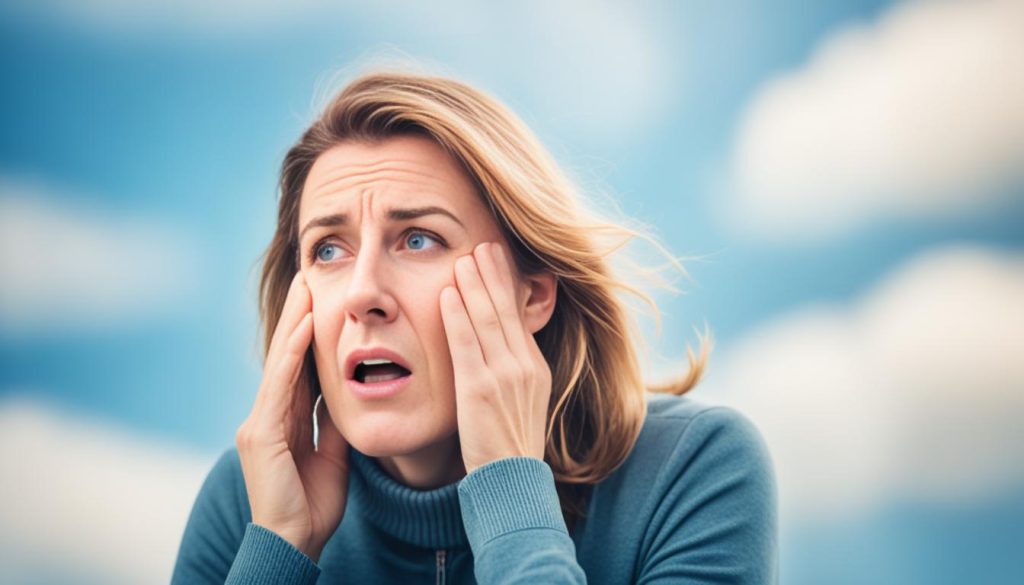
Note: While these techniques are generally safe, it’s important to use caution and stop if you experience any pain or worsening symptoms. If you have any concerns or if your ears won’t pop despite trying these techniques, consult a doctor for further evaluation and advice.
How Does Ear-Popping Work?
Ear-popping is a natural process that helps equalize the pressure in the ears. It involves the opening of the eustachian tubes, which connect the middle ear to the back of the throat. When you swallow, chew, or yawn, the eustachian tubes automatically open, allowing air to enter the middle ear. This process creates a popping sensation and a clicking noise.
The eustachian tubes play a crucial role in maintaining the balance of pressure on both sides of the eardrum. When there is a pressure difference between the middle ear and the external environment, the eustachian tubes help equalize it. This can occur during altitude changes, such as when flying in an airplane or diving underwater.
When the eustachian tubes open, air flows into the middle ear, equalizing the pressure on both sides of the eardrum. This equalization of pressure prevents discomfort and allows the eardrum to vibrate properly, enabling clear hearing.
However, if the eustachian tubes are blocked or obstructed by fluid, mucus, or inflammation, they may not open easily. This can lead to a feeling of fullness in the ears and discomfort. In such cases, it may be necessary to take measures to unblock the tubes and restore proper eustachian tube function.
To summarize, ear-popping involves the opening of the eustachian tubes, allowing air to enter the middle ear and equalize the pressure. This process helps alleviate ear discomfort and ensures the proper functioning of the ears.
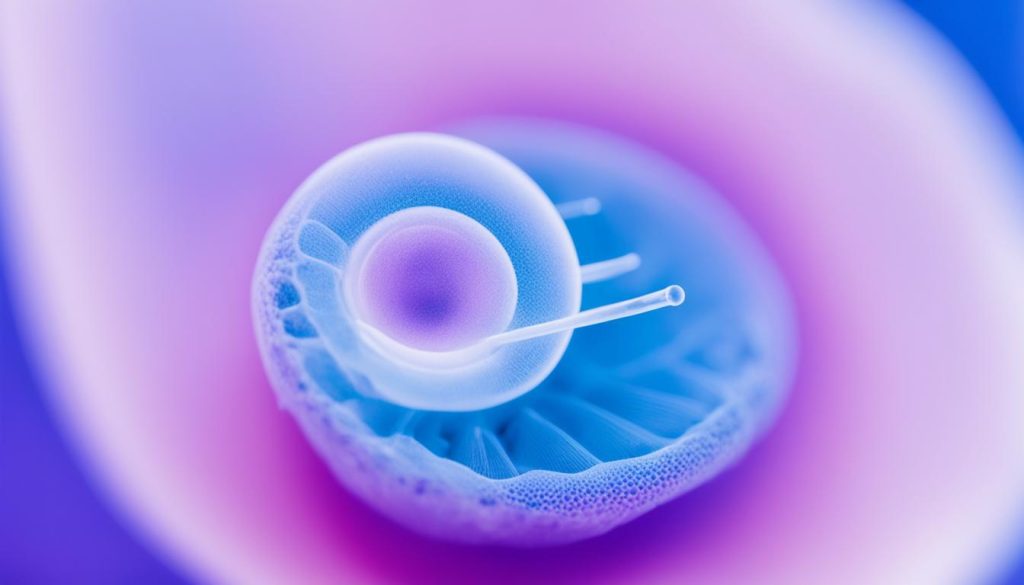
| Cause | Description |
|---|---|
| Sinus or Ear Infections | Infections in the sinuses or ears can lead to swelling and blockage of the eustachian tubes. |
| Fluid or Mucus | Excess fluid or mucus can build up in the eustachian tubes, obstructing their opening. |
| Inflammation | Inflammation of the eustachian tubes can cause them to narrow or close, preventing proper airflow. |
Can You Pop Your Ears If You Have Tinnitus?
If you have tinnitus, the perception of ringing or buzzing sounds in the ears, you may wonder if it’s possible to pop your ears for relief. While it might still be possible to pop your ears with tinnitus, it’s important to consider the underlying cause of the condition.
Tinnitus can be caused by various factors, including blockage of the eustachian tubes. These tubes connect the middle ear to the back of the throat and help regulate pressure. If they become blocked due to sinus infection or ear infections, earwax obstruction, or other factors, the tubes may not open properly to relieve the pressure and popping sensation.
It’s important to note that forcefully popping your ears might not be the best solution for tinnitus caused by eustachian tube blockage. Instead, it’s advisable to consult an ear specialist or ENT doctor for a thorough evaluation and proper management of the underlying cause of your tinnitus.
Symptoms of Eustachian Tube Blockage-Induced Tinnitus
If you’re experiencing tinnitus along with any of the following symptoms, it’s crucial to seek medical attention:
- Ringing or buzzing sounds in the ears
- Ear fullness or pressure
- Difficulty hearing or muffled sounds
- Pain or discomfort in the ears
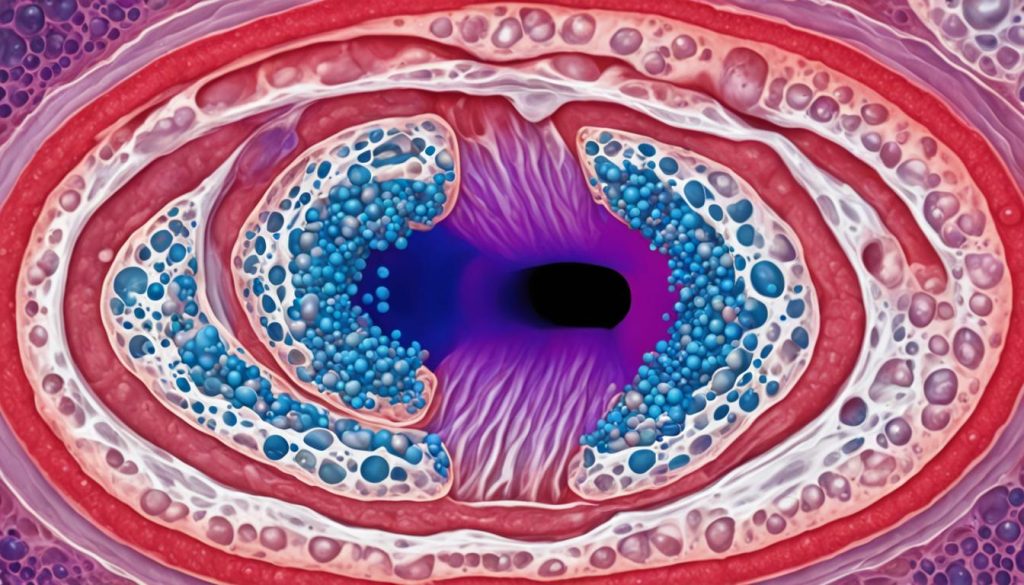
Treatment for Tinnitus and Eustachian Tube Blockage
Treatment for tinnitus caused by eustachian tube blockage focuses on addressing the underlying cause. Depending on the severity and underlying condition, treatment options may include:
- Management of sinus or ear infections with appropriate medications
- Removal of earwax obstruction with ear irrigation or other techniques
- Management of allergies or other factors contributing to eustachian tube dysfunction
- Referral for surgical intervention in severe cases
| Treatment | Description |
|---|---|
| Medication | Antibiotics or antifungals to treat infections, antihistamines for allergies, or nasal corticosteroids to reduce inflammation |
| Earwax removal | Using gentle irrigation or specialized tools to clear the ear canal obstruction |
| Eustachian tube balloon dilation | A minimally invasive procedure to widen the eustachian tube and restore proper functioning |
| Tympanostomy tubes | Surgical insertion of small tubes in the eardrums to improve ventilation and equalize the pressure |
Remember, proper diagnosis and treatment are essential for managing tinnitus and eustachian tube blockage. Consulting a healthcare professional will help determine the most appropriate course of action for your specific condition.
What Else Causes Ear Popping?
Ear popping can occur due to changes in air pressure. When you fly on an airplane, drive up a high mountain range, or dive underwater, the pressure changes can cause your ears to pop as they adjust to the surrounding air pressure. If your ears don’t pop on their own in these situations, you can try chewing gum or yawning to help equalise the pressure.
What to Do If Your Ears Won’t Pop?
If you find that your ears won’t pop, it’s crucial to consult a doctor for further evaluation and guidance. This is especially important if you experience additional symptoms such as pus or discharge draining from your ear, hearing loss, fever, ear pain, or ringing in your ears.
These symptoms could indicate underlying conditions such as enlarged adenoids, sinus or ear infections, allergies, earwax buildup, or a perforated eardrum. Only a medical professional can properly diagnose the cause of your symptoms and recommend appropriate treatment.
The doctor may suggest medications to alleviate your symptoms, such as antibiotics to treat an infection or ear drops to reduce inflammation. In some cases, surgery may be necessary to address the underlying issue causing your ears not to pop. Your doctor will guide you through the available treatment options based on your specific situation.
Remember, if you are experiencing persistent ear pain, seeking medical advice is crucial. Delayed treatment could lead to complications and potential hearing loss. Always consult a healthcare professional to ensure comprehensive care for your ear health.
Common Causes of Ears Not Popping:
- Enlarged adenoids
- Sinus or ear infections
- Allergies
- Earwax buildup
- Perforated eardrum
When to Consult a Doctor:
- Pus or discharge draining from your ear
- Hearing loss
- Fever
- Ear pain
- Ringing in your ears (tinnitus)
Conclusion
Popping your ears is a simple and effective way to relieve ear pressure and discomfort caused by changes in air pressure. By utilizing various ear popping techniques, you can find relief and restore comfort to your ears.
The easiest methods for popping your ears include swallowing, yawning, and performing the Valsalva and Toynbee maneuvers. These techniques help equalize the pressure in your ears and alleviate any blockages that may cause discomfort.
In addition to these techniques, you can also try applying a warm washcloth to your ears or using nasal decongestants or corticosteroids to clear any congestion in the Eustachian tubes. If all else fails, a doctor can insert ventilation tubes to provide long-term relief.
If your ears won’t pop or if you experience worrying symptoms such as pus or discharge, hearing loss, fever, ear pain, or ringing in your ears, it’s essential to consult a doctor for proper diagnosis and treatment. They can identify any underlying conditions and recommend the appropriate course of action to alleviate your symptoms.

